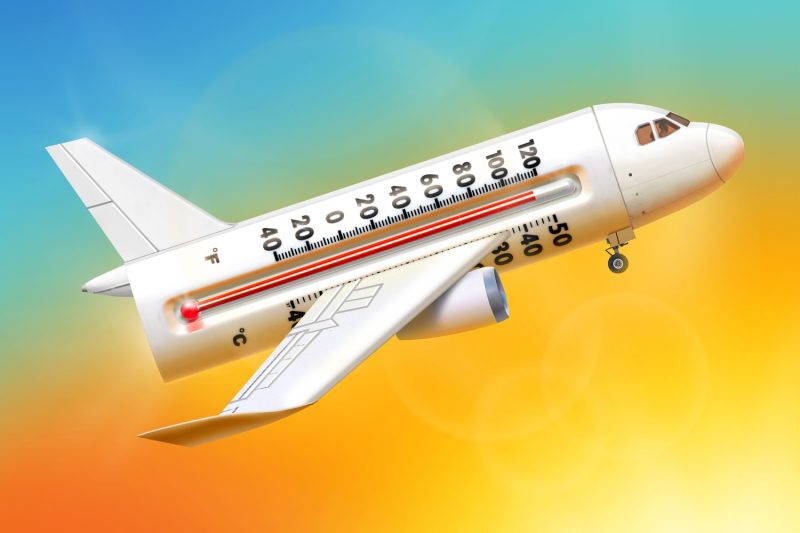
Flying in Hot Water: Airlines and Airports Keep Their Cool Despite Extreme Heat Challenges
Extreme Heat Makes Flying Harder, Airlines and Airports Say They Aren’t Sweating It
According to a recent report by the International Air Transport Association (IATA), extreme heat can have a significant impact on the aviation industry, making flying more challenging for both airlines and passengers. As global temperatures continue to rise, airlines and airports are increasingly facing the challenges posed by extreme heat and its effects on air travel. However, despite these challenges, airlines and airports are confident in their ability to adapt and continue operating efficiently in the face of extreme heat.
One of the key challenges faced by airlines and airports during periods of extreme heat is the impact on aircraft performance. High temperatures can affect the lift generated by aircraft wings, reduce engine efficiency, and increase the length of the runway required for takeoff. These factors can lead to weight restrictions on flights, longer waiting times on the tarmac, and the need for additional fuel, all of which can result in delays and disruptions to flight schedules.
In addition to the operational challenges posed by extreme heat, airlines and airports also have to consider the comfort and safety of passengers and crew. High temperatures can make it uncomfortable for passengers waiting in terminals or sitting on hot aircraft during boarding and taxiing. In extreme cases, the heat can pose a health risk to passengers and crew members, particularly during prolonged delays or when aircraft are stuck on the ground for extended periods.
Despite these challenges, airlines and airports are taking proactive measures to mitigate the impact of extreme heat on their operations. This includes conducting regular assessments of aircraft performance in high temperatures, implementing heat-related safety protocols for passengers and crew, and investing in technology and infrastructure to improve resilience to extreme weather conditions.
Some airlines have also introduced flexible rebooking policies to allow passengers to change their travel plans without incurring additional fees in the event of flight disruptions due to extreme heat. By offering customers greater flexibility, airlines are able to minimize the inconvenience caused by delays and cancellations, while also ensuring the safety and well-being of passengers and crew.
Overall, while extreme heat does present challenges for the aviation industry, airlines and airports are well-prepared to adapt and continue operating safely and efficiently in the face of rising global temperatures. By implementing proactive measures, investing in technology and infrastructure, and putting the safety and comfort of passengers and crew first, the aviation industry is working to ensure that extreme heat will not disrupt air travel in the long term.
